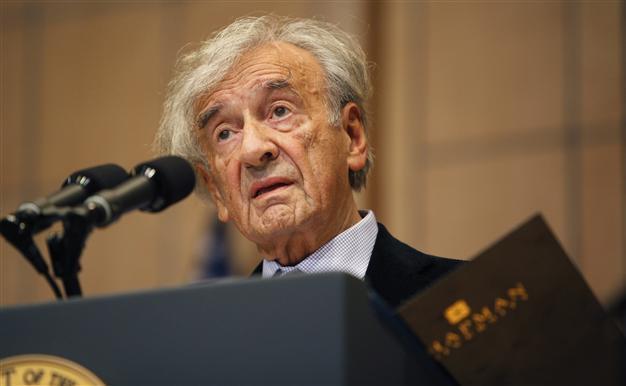Holocaust survivor Wiesel returns Hungarian honour
BUDAPEST - Agence France-Presse

Elie Wiesel. EPA Photo
Holocaust survivor and
Nobel peace laureate
Elie Wiesel has returned Hungary's highest honour in protest at the "whitewashing" of its Nazi past, according to a letter published today.
Wiesel said "it has become increasingly clear that Hungarian authorities are encouraging the whitewashing of tragic and criminal episodes in Hungary's past," he said in the letter published in the Magyar Narancs weekly.
He said these included the "the wartime Hungarian governments' involvement in the deportation and murder of hundreds of thousands of its Jewish citizens. I do not wish to be associated in any way with such activities." Romanian-born Wiesel, who is of Hungarian descent, was presented with Hungary's highest award, the Order of Merit, Grand Cross, by president Ferenc Madl in 2004.
His letter was sparked by what he called the "outrageous" attendance by the speaker of parliament in a ceremony honouring Romanian-born author Jozsef Nyiro last month.
Nyiro supported Hungary's 1920-1944 dictator and
Hitler ally Miklos Horthy as well as Ferenc Szalasi, the leader of the brutal Arrow Cross regime installed in power by the Nazis after the ouster of Horthy in 1944.
Romania thwarted plans for a reburial of Nyiro's remains but a religious commemoration did take place that was attended by Kover as well as by Gabor Vona, leader of Hungary's far-right Jobbik party.
Hungarian Prime Minister Viktor Orban, who has come under fire abroad for a raft of legislation that critics say is eroding democracy, has presided over something of a rehabilitation of Horthy.
Last month a square in a park in the town of Gyomro was renamed in Horthy's honour, a life-size statue has been erected in a village and in the city of Debrecen a marble plaque honouring him was restored at a school.
Detractors accuse Orban of stirring nationalist sentiments and reinterpreting history to lure voters away from Jobbik. Last month two deputies from the ruling Fidesz party attended a ball to raise money for another statue in Budapest.
